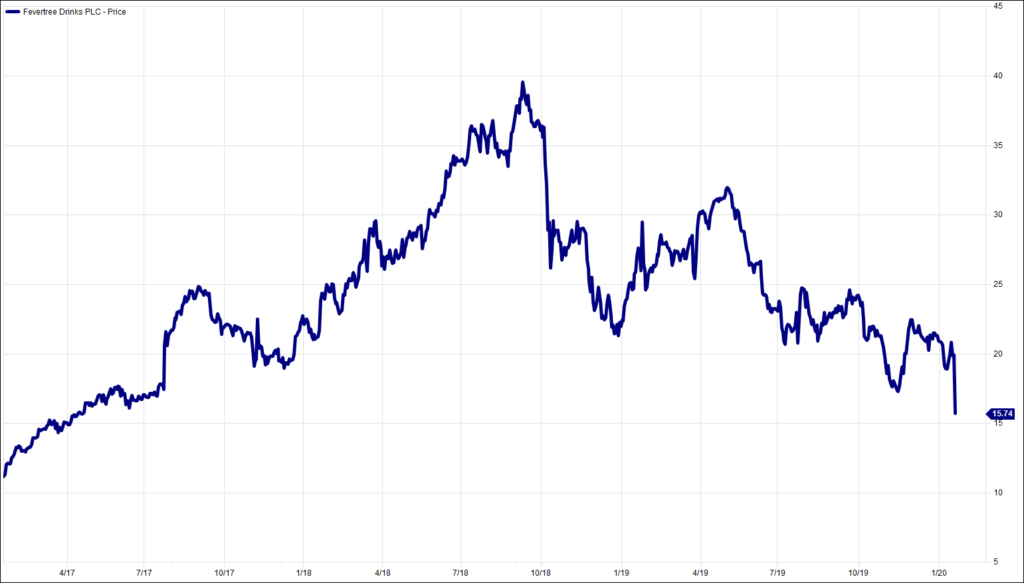
It is a while since we opened with some thoughts about vegetables, puddings and jams. On this decidedly chilly Monday morning, let us ponder on the wonder of rhubarb. It is, you will know, one of the two things for which Pontefract is famous. I have no intent to be harsh to this fine market town of West Yorkshire, but a quick google of the famous folk of the town reveals only Barbara Castle and Harvey Proctor as names I recognize. What it lacks on the human front, though, is more than compensated for by the consumables.
Rhubarb, you foodies will know, thrives in the wet and the cold of the town’s adjacent microclimate. There is logic: gastrophiles believe the purple stalwart of the lower levels of a crumble originates in Siberia. If you want to split hairs, it probably first came from China; but so did everything, other than golf. Anyway, after a long winter’s soaking, the frosts have bitten. This should be a fine year for the rhubarb. Were one a trader of rhubarb futures, the bet would be that prices are going to fall in anticipation of an abundant crop. The trade is short rhubarb.
I doubt that this has any relevance to the rest of this column, other than providing this week’s silly question. I hope though that it is a diversion from the things that actually matter to all our clients’ portfolios, which are much less interesting.
First, this is the week that the great, the good and the bad go to Davos to discuss how rich and important they all are. They will also tell us how terrible climate change is and how we must all stop flying to conferences. Yes, it should all happen on videoconference, but have you ever had an e-cocktail party?
This is also the week when the US fourth quarter earnings party gets into full swing. The earning seasons, as they are called, are a triumph of obfuscation. Every three months we see how well, or otherwise, US businesses are alleged to have performed. The tricky bit – and the part which seems to be getting less and less important – is working out how much of this is true.
Companies and analysts like to talk about how the quarter just gone compares with a) how they thought it would be and b) the previous three months. It should be that neither of these ought to matter very much. Of course the opposite is true.
Allow me to ask you a question. Knowing, as I am sure that you do, that the S&P 500 is expected to report a fall in fourth quarter earnings of -2.1% (this and all data is sourced from FactSet), what does this mean for earnings over the whole of 2019?
I am sure that everyone will know that the S&P 500 Index rose by 30% last year (give or take an irrelevance of rounding). Being in possession of that performance snippet, what will have happened to post-tax company profits? These are expected to have risen (so that is a good start) by…wait for it…0.2%. One might argue therefore that the US equity market has become 30% more expensive over the last year. That is impressive.
I thought it would be fun to see how things have moved on over the past year. At the start of last year, the expected growth in earnings was 7.8%. If we assume that the actual outcome is going to be, give or take, zero, that is quite a difference. This year, Wall Street is currently predicting 9.5%. 2019 puts a useful perspective on this: our confidence in that actually happening should be, err, zero.
But why is it that company earnings appear not to matter? How can it be that a year of such steady downgrades can be one in which the Index actually rose by almost a third? OK, some of this is that the end of 2018 was irrationally bad, but this cannot be the whole story.
If one believes in p/e ratios, over the last year and a bit, the 12 month forward rating of the S&P 500 Index has risen from c.14 times to something a bit over 18 times. This is the highest in 10 years. It cannot be the case, surely, that the market will keep rising irrespective of what is happening to company profits.
The US earnings season is a massive exercise in smoke and mirrors. In 2020, these profit numbers are actually going to matter. A lot. It will never have been more important to be able to understand what exactly it is that is going on in US Inc.
A big congratulations to the few who knew that a nip and a gill are both a quarter of a pint. Today, what is the other culinary treat for which Pontefract is famous (or notorious)?
Chart of the Week:
Fevertree Drinks, past 3 years. The latest Christmas casualty.

HA804/240
All charts and data sourced from FactSet
Jim Wood-Smith – CIO Private Clients & Head of Research

Hawksmoor Investment Management Limited is authorised and regulated by the Financial Conduct Authority (www.fca.org.uk) with its registered office at 2nd Floor Stratus House, Emperor Way, Exeter Business Park, Exeter, Devon EX1 3QS. This document does not constitute an offer or invitation to any person in respect of the securities or funds described, nor should its content be interpreted as investment or tax advice for which you should consult your independent financial adviser and or accountant. The information and opinions it contains have been compiled or arrived at from sources believed to be reliable at the time and are given in good faith, but no representation is made as to their accuracy, completeness or correctness. The editorial content is the personal opinion of Jim Wood-Smith, CIO Private Clients and Head of Research. Other opinions expressed in this document, whether in general or both on the performance of individual securities and in a wider economic context, represent the views of Hawksmoor at the time of preparation and may be subject to change. Past performance is not a guide to future performance. The value of an investment and any income from it can fall as well as rise as a result of market and currency fluctuations. You may not get back the amount you originally invested. Currency exchange rates may affect the value of investments.
